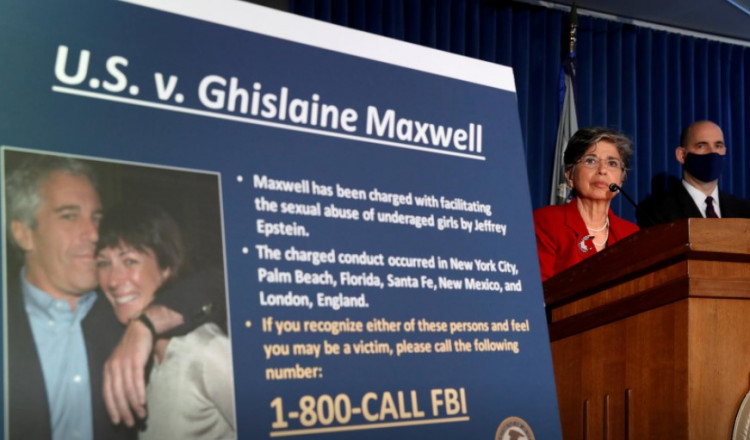The Justice Department on Friday released more than 300 pages of transcripts and audio recordings from interviews with Ghislaine Maxwell, Jeffrey Epstein's former companion, as the Trump administration faced mounting criticism over its handling of records tied to the sex-trafficking case.
The disclosure came after weeks of pressure from Democrats, Republican allies, and Trump supporters, who accused the administration of withholding promised evidence related to Epstein's alleged network. Deputy Attorney General Todd Blanche conducted the two-day interviews with Maxwell last month at a federal prison in Florida, where she was serving a 20-year sentence following her 2021 conviction for helping Epstein recruit and abuse underage girls.
Maxwell, 62, told Blanche she may have first met Donald Trump around 1990, when her father, media tycoon Robert Maxwell, owned the New York Daily News. "I may have met Donald Trump at that time, because my father was friendly with him and liked him very much," she said, according to the transcripts. She added that her father also admired Trump's then-wife, Ivana, "because she was also from Czechoslovakia, where my dad was from."
The interviews included senior Justice Department and law enforcement officials: Diego Pestana, acting associate deputy attorney general; Spencer Horn, an FBI special agent; and Mark Beard, a deputy U.S. Marshal. The transcripts, published online with redactions, showed Maxwell rejecting longstanding speculation of a so-called "client list" tied to Epstein's operations. She reiterated her past view that Epstein did not take his own life in 2019, despite the official suicide ruling.
Her attorney, David Markus, defended her testimony. "Ms. Maxwell answered every question," Markus said in a statement. "She did not refuse to respond and did not dodge any question. She supported her answers with documents and other objective evidence. Her demeanor and credibility are clear for anyone to hear. She was able to do this despite five torturous years in custody, some of which in the worst imaginable conditions." Markus further argued on social media that Maxwell was unfairly targeted: "Ghislaine Maxwell is innocent and never should have been tried, much less convicted, in this case."
The disclosure marked the latest attempt by the Trump administration to present itself as transparent following a series of missteps. Earlier this year, Attorney General Pam Bondi told conservative influencers at the White House she had "The Epstein Files: Phase 1," binders that turned out to contain mostly public information. Bondi later suggested she had a "truckload" of additional material.
The administration's promises fueled conspiracy theories that sensitive information about politicians and business leaders was being concealed. Before taking his post as FBI director, Kash Patel had said on a podcast that Epstein's "black book" was under the "direct control of the director of the FBI." Dan Bongino, now a senior administration figure, had also promoted similar claims.
Those expectations collapsed last month when the Justice Department said no "further disclosure would be appropriate or warranted," noting that most materials remained sealed by court order to protect victims. The reversal sparked outrage among Trump's base, leading the president to publicly dismiss what he called the "Jeffrey Epstein Hoax" and chastise his supporters as "weaklings" for believing in a coverup.
Maxwell, after her interview with Blanche, was transferred from the low-security Florida facility to a minimum-security prison camp in Texas. Officials have not explained the reason for the move.




